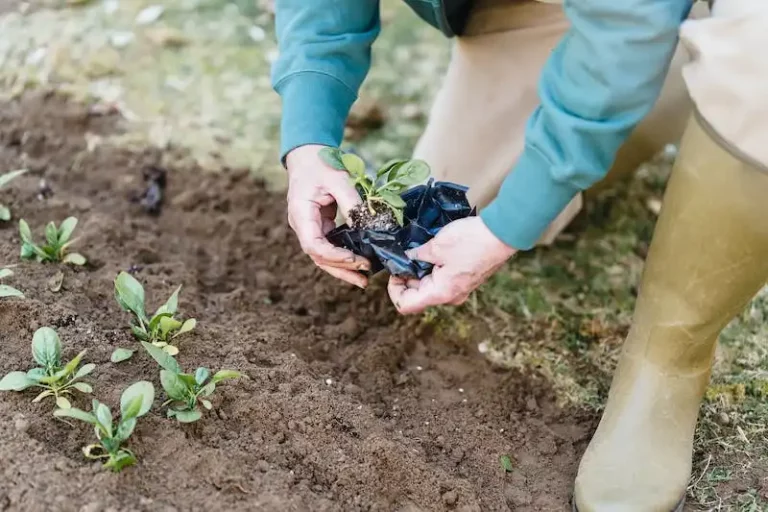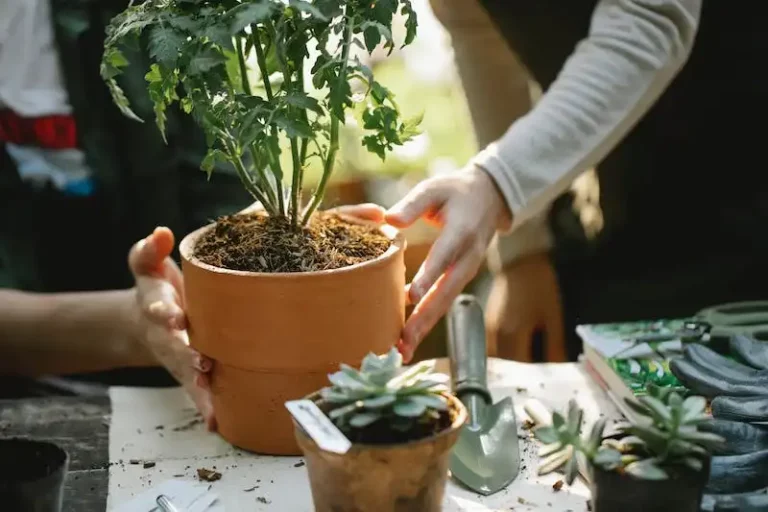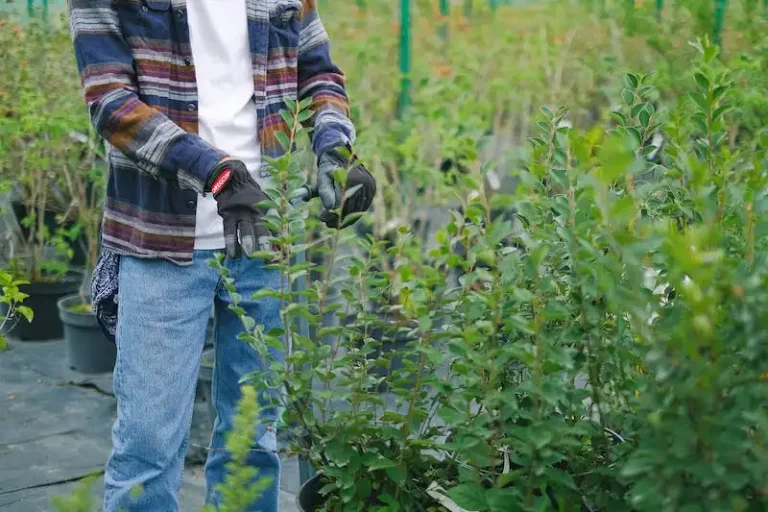If you’re into gardening, you know that composting is a great way to recycle organic waste and feed your plants with nutrient-rich soil. But what about tomatoes? Can you compost them? The short answer is yes, you can compost tomatoes, but there are a few things to keep in mind.
First, let’s talk about the tomato season. Tomatoes are typically grown during warm and sunny months. During this time, they produce a lot of green foliage and fruit. If you’re wondering whether you can compost the parts of the tomato plant that are not edible, like the leaves and stems, the answer is yes. In fact, composting these parts of the plant helps to build a balanced and overall healthy compost pile.
However, when it comes to composting tomatoes, there are a few things to consider. Tomatoes are prone to diseases, so you’ll want to make sure you’re composting them properly to avoid spreading any potential pathogens. One way to do this is to follow a hot composting method, where the temperature reaches 140-160 degrees Fahrenheit. This will help kill off any harmful organisms. Another tip is to chop up the tomatoes into smaller pieces before adding them to the compost pile. This will speed up decomposition and prevent any whole tomatoes from sprouting in your garden.
Tomatoes are also a rich source of potassium, which is an essential nutrient for healthy plant growth. When composting tomatoes, you can use them as a top-dressing for your plants. Simply spread a layer of chopped tomatoes around the base of your plants, about 1-2 inches thick. This will help retain moisture, provide nutrients, and improve soil aeration.
So, if you’re wondering whether you can compost tomatoes, the answer is yes. Composting tomatoes provides many benefits, such as nutrient retention, improved soil aeration, and overall healthier plants. Just make sure to follow a few simple tips, like chopping up the tomatoes and maintaining the right temperature in your compost pile. By doing so, you’ll be able to turn those excess tomatoes into incredible organic fertilizer for your garden.
By properly composting tomatoes, you can reduce waste, improve soil quality, and promote a healthy garden. Composting is an incredible way to recycle organic waste and produce nutrient-rich soil. If done correctly, composting can help retain enough moisture, provide the right balance of nutrients, and ensure proper aeration for your plants. So, if you have excess tomatoes or any other organic waste, don’t throw them away – compost them and reap the benefits!
Can You Compost Tomato Plants
Composting tomato plants is legal and can be a better option than simply throwing them in the trash. By composting tomato plants, you can ensure that the organic matter they contain is used to its fullest potential.
There are several ways to compost tomato plants. One way is to layer them into a compost pile, alternating with other organic materials such as grass clippings, leaves, and kitchen scraps. It is important to break down the tomato plants into smaller pieces to help them decompose faster.
When composting tomato plants, it is best to have a compost pile that is at least 3 feet high and 3 feet wide. This size allows for proper heat retention and decomposition. Regularly turning the compost pile will also help to maintain the required temperature and aid in the decomposition process.
Tomato plants provide several benefits when added to a compost pile. They are rich in nutrients such as phosphorus and potassium, which are essential for plant growth. The decomposing tomato plants will help to fertilize the soil, improve moisture retention, and promote healthy microbial activity.
Unfortunately, composting tomato plants can also come with some risks. Tomato plants can carry disease-causing pathogens such as fusarium, which can survive the composting process. To reduce the risk of spreading diseases, it is advisable to avoid composting tomato plants that have been affected by diseases.
If you want to compost tomato plants but are concerned about the risks, there are ways to minimize these risks. One way is to ensure that the compost pile reaches a high enough temperature (at least 140°F) to kill any potential pathogens. Another option is to use a composting system that is designed to handle plant materials that may contain diseases, such as a hot composting system or a compost tumbler.
When composting tomato plants, it is also important to consider the pH of the soil you plan to use the compost on. Tomatoes prefer a slightly acidic soil with a pH between 6 and 6.8. If your soil is already acidic, adding compost made from tomato plants may not be necessary.
In conclusion, composting tomato plants can be a beneficial way to make use of the organic matter they contain. It helps to fertilize the soil, retain moisture, and provide essential nutrients for plant growth. However, it is important to take precautions and follow the recommended guidelines to minimize the risks associated with composting tomato plants.
Can you compost tomato plants
Composting tomato plants is a great way to recycle them and enrich the soil in your garden. While you can compost tomato plants, there are a few things to keep in mind.
- Temperature: Composting requires the right conditions, including the right temperature. Tomatoes break down best in temperatures between 135°F and 160°F (57°C and 71°C). If your compost pile doesn’t reach these temperatures, you may need to add other materials to help with the breakdown.
- Benefits: Composting tomato plants can provide several benefits. The organic content of the tomatoes helps improve soil structure and moisture retention. Additionally, the breakdown of tomato plants adds nutrients to the soil, such as phosphorus and potassium.
- Spring tomatoes: If you’re composting tomato plants in the spring, make sure to remove any green or unripe tomatoes. These can still contain viable seeds and may germinate in your compost pile.
- Don’t compost diseased plants: If your tomato plants were affected by disease, it’s best not to compost them. This can help prevent the spread of the disease to future plants.
- Soak tomatoes in water: Before adding the tomato plants to your compost pile, it’s a good idea to soak them in water for a while. This will help soften the plants and make them easier to break down.
- Grass and leaves: To ensure a well-balanced compost pile, mix the tomato plants with other organic materials like grass clippings and dry leaves. This will help create a diverse compost with a good carbon-to-nitrogen ratio.
- Composting tea: Tomato plants can also be used to make composting tea. This liquid fertilizer is made by soaking tomato plants in water and then using the resulting mixture to water your plants.
- Avoid bagged tomatoes: Bagged tomatoes from the grocery store are often treated with chemicals and may not break down naturally in a compost pile. It’s best to stick with homegrown or organic tomatoes.
In conclusion, composting tomato plants can be a beneficial way to recycle them and improve your soil’s fertility. Just make sure to follow these tips to ensure proper breakdown and avoid any potential issues. Happy composting!
What are the risks of composting tomato plants?
Composting tomato plants is a popular practice among gardeners because it helps to recycle organic waste and enrich the soil. However, there are some risks involved that you should be aware of.
One of the main risks of composting tomato plants is that they can harbor diseases. If the tomato plants were infected with any diseases during the growing season, these diseases can survive in the compost pile, especially if it does not reach high enough temperatures to kill them off. When you use the compost in the next planting season, there is a chance that the disease-causing pathogens may infect the new crop.
Another risk is that composting tomato plants that were heavily fertilized can result in excessive nitrogen levels in the compost. This can have negative effects on plant growth when the compost is used in the garden. Excessive nitrogen can cause lush vegetative growth but inhibit fruit production.
Additionally, composting tomato plants that have a high water content can lead to poor moisture retention in the compost pile. Tomatoes are made up of mostly water, and their high water content can make the compost too wet. This can create anaerobic conditions in the pile, leading to unpleasant odors and slow decomposition.
To minimize these risks, there are a few simple tips you can follow. First, make sure to properly turn your compost pile regularly. This helps to ensure that the material inside the pile is well mixed and heated sufficiently to kill off any disease-causing pathogens. Second, consider using a top-dressing of perlite or vermiculite to help maintain proper moisture retention in the compost pile. This will prevent it from becoming too wet. Finally, consider composting your tomato plants in smaller quantities and mixing them with other materials, such as dry leaves or grass clippings, to balance the carbon-to-nitrogen ratio and promote decomposition.
In conclusion, composting tomato plants can be a beneficial practice, but it does come with some risks. To make sure you get the best results and minimize the risks, follow these tips and maintain a healthy compost pile.
What are the benefits of composting tomato plants
Composting tomato plants can create a level of organic matter in the soil that helps them survive and thrive. Tomato plants are heavy feeders and require a rich, nutrient-dense soil to produce a bountiful harvest. By adding compost, you can improve the nutrient content and structure of the soil, providing a better environment for tomato growth.
Composting tomato plants also helps in breaking down the plant material properly. Tomato plants can be quite resilient and take months to fully decompose if left alone. By mixing them into the compost pile and regularly turning it, you can speed up the breakdown process and create a fine compost that is suitable for use in your garden.
One of the main benefits of composting tomatoes is that they provide a natural source of phosphorus. Phosphorus is an essential nutrient for plant growth and is necessary for healthy root development. By composting tomatoes, you can retain and provide a readily available source of phosphorus for your plants.
In addition, composting tomato plants can help retain moisture in the soil. The organic matter in the compost acts as a sponge, absorbing and holding onto water, which is especially beneficial in sunny and dry climates. This can reduce the risk of drought stress and help your tomato plants stay hydrated.
Composting tomato plants also helps improve the soil structure. The organic matter in the compost adds texture and improves drainage, creating a well-aerated and healthy growing environment for your tomatoes. This can help prevent issues like root rot and fusarium wilt, which can negatively affect tomato plants.
Another benefit of composting tomatoes is that it reduces waste. Instead of discarding the plants at the end of the season, you can compost them and use the nutrient-rich compost as a soil amendment for future crops. This not only helps reduce landfill waste but also provides a sustainable way to recycle organic matter.
Composting tomato plants is a simple process that can be done throughout the year. Whether you’re composting tomato plants from last season or using fresh plant material, the principles remain the same. Just make sure to properly mix and turn the compost regularly to facilitate decomposition.
Overall, composting tomato plants offers numerous benefits for both your garden and the environment. It helps create healthier soil, provides essential nutrients for plant growth, improves water retention, and reduces waste. So next time you have tomato plants to dispose of, consider composting them to reap these benefits and support a more sustainable gardening practice.
| – | punch, produce, top-dressing, legal |
| absorb | compost, matter, nutrients, water |
| amendment | soil |
| better | plant growth, environment |
| composted | material, tomatoes |
| down | breakdown |
| help | retain moisture, soil structure |
| how | to compost tomatoes |
| in | the soil, growing tomatoes |
| look | for fusarium wilt |
| of | the season, nutrient-rich compost, organic matter, a sustainable gardening practice |
| sunny | and dry climates |
| their | tomato plants |
| ways | to use compost |




